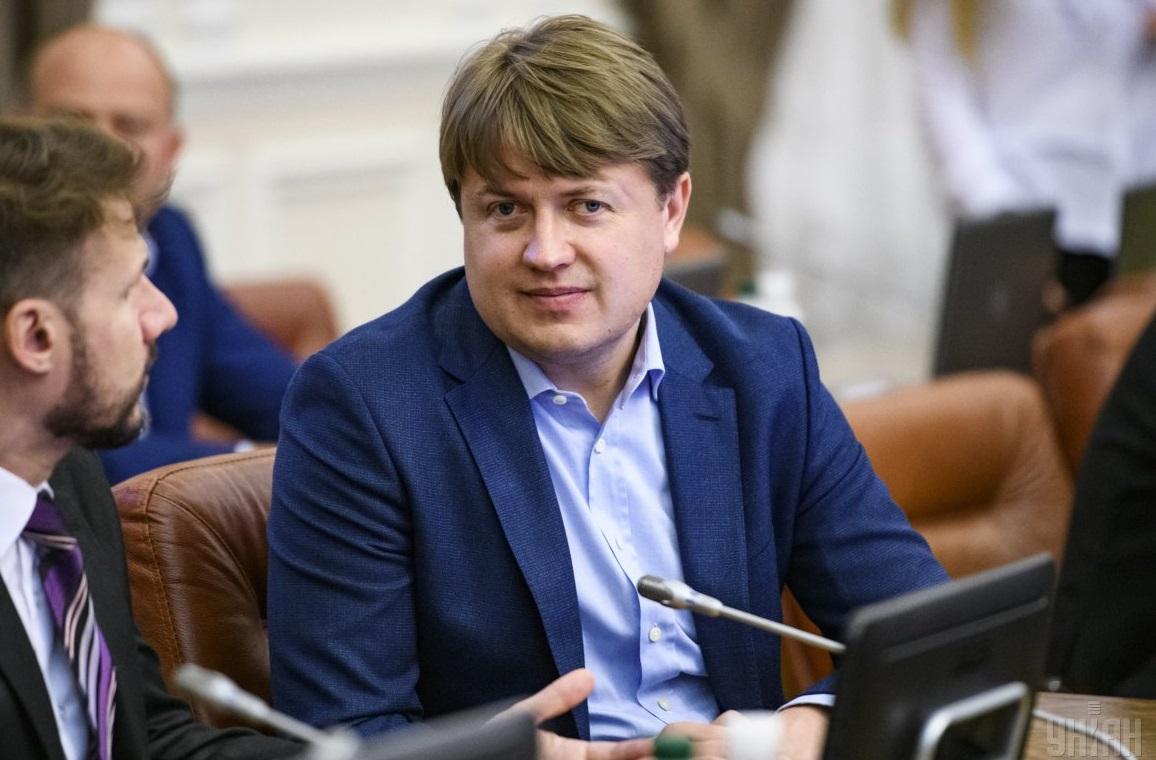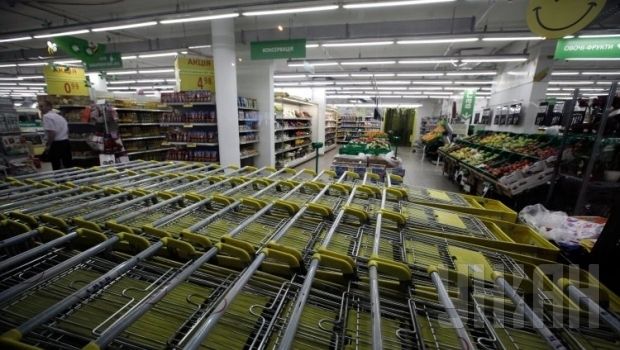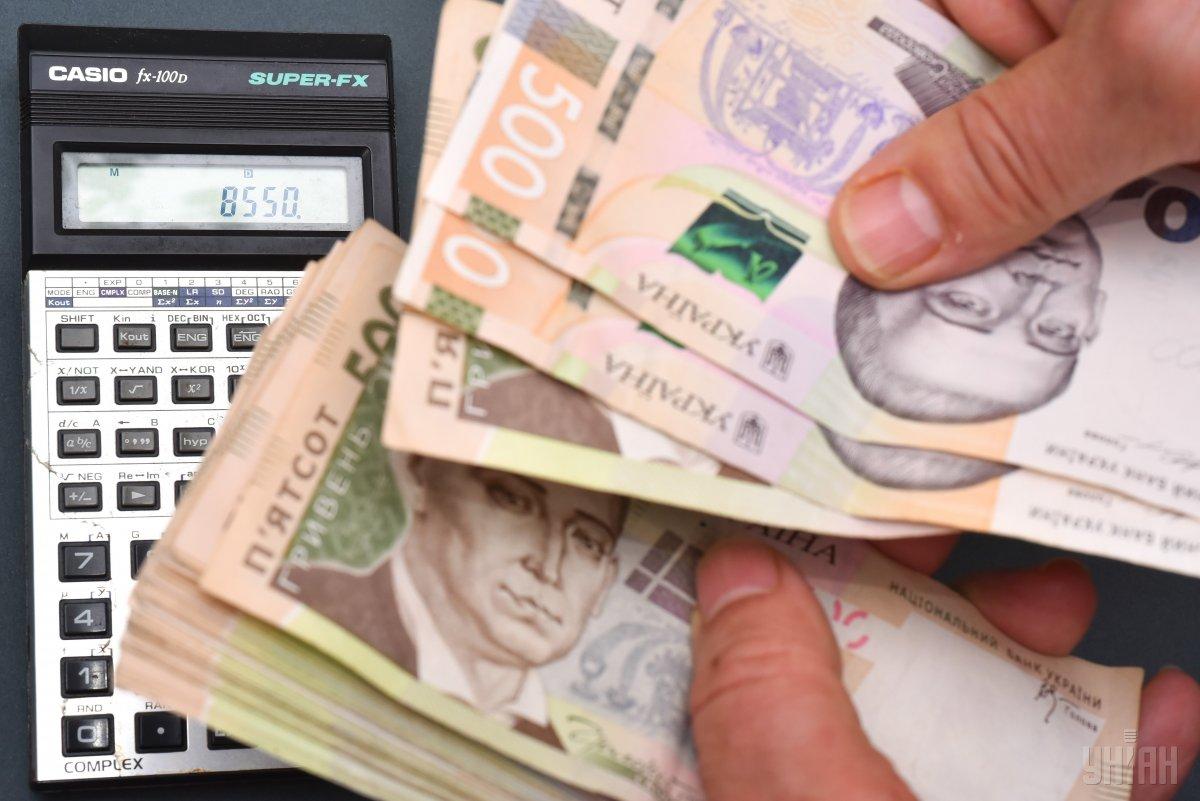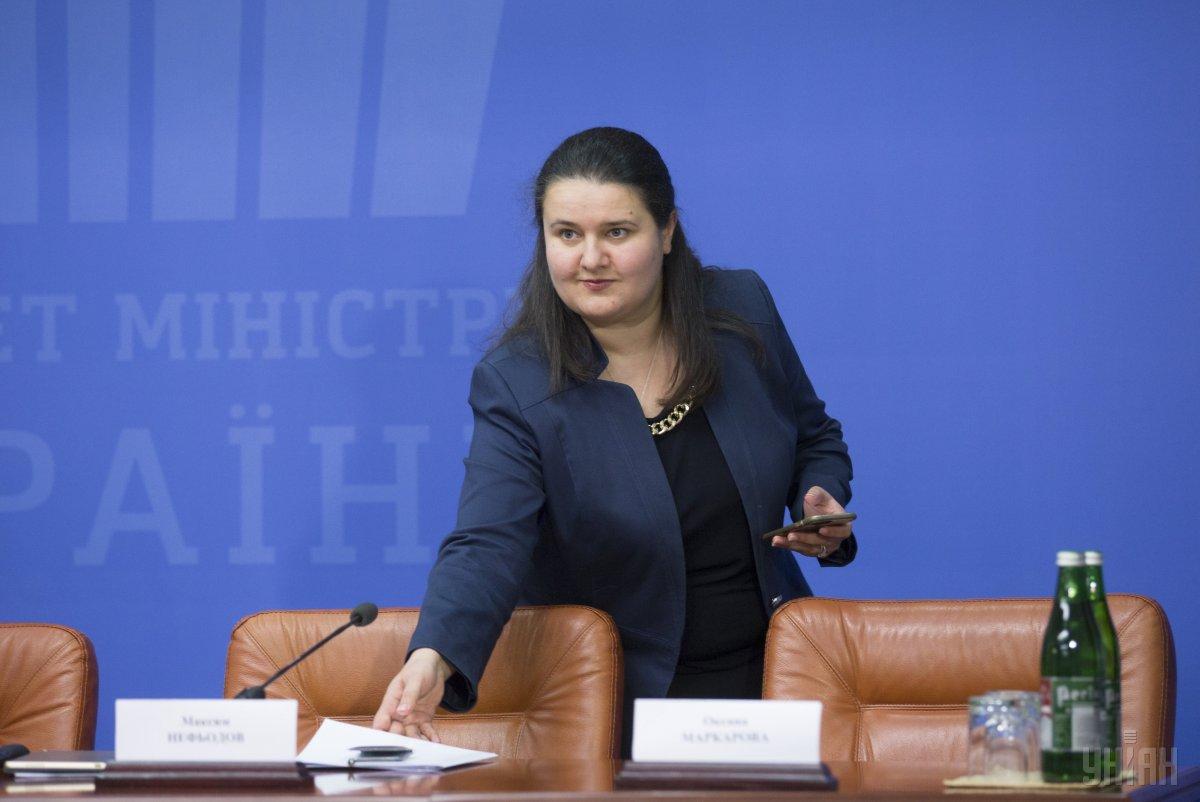
Week's balance: Economy accelerating, government lowering electric tariffs for industrial consumers, while non-residents putting bond purchases on pause
The State Statistics Service reported on a faster growth of the Ukrainian economy in 1H 2019, the Cabinet allowed reducing electricity tariffs for industrial enterprises, and non-residents suspended the purchase of Ukrainian government loan bonds – these are the main economic developments of the outgoing week.
The third week of August turned out to be rather calm, and, while some Ukrainians are relaxing on the faraway beaches and some swear at a wave of cold and rain over a significant part of Ukraine, Prime Minister Volodymyr Groysman came back in office from vacation. The head of government, who is set to resign in late August due to the election of a new parliament, held a Cabinet meeting after a two-week break.
The prime minister demanded that the Ministry of Energy and the energy regulator take measures to reduce electricity tariffs for large industrial consumers who previously complained about a 20% rise in price of electricity prices after the launch of a new electricity market on July 1.
Groysman noted that President Volodymyr Zelensky also demanded an easing. As a result, the Cabinet of Ministers amended the resolution on special obligations in the electricity market, which allows reducing tariffs for large industrial consumers, and the regulator approved the reduction of electricity transmission tariffs for Ukrenergo, the operator of Ukrainian power grids.
Another decision of the government caused a stir: obligations were imposed on Naftogaz to sell gas to a Luhansk TPP, owned by oligarch Rinat Akhmetov's DTEK, at a special price, 40% lower than the one set for the households.
It is worth noting that the Luhansk Thermal Power Plant, which is the only producer of electricity for the northern part of the Luhansk Region, was left without coal, its main fuel, over ceased supplies from Russia after the Kremlin introduced corresponding restrictions. Five years ago, Putin's Russia occupied the eastern part of the Ukrainian Donbas, seizing dozens of enterprises, including coal mines. As a result, Luhansk station was forced to switch to gas, which is a more expensive reserve fuel.
Ukrainian experts, Naftogaz, and the President’s representative in the Cabinet of Ministers, Andriy Gerus, criticized the move. Gerus emphasized that other utility companies periodically experience problems with energy supplies, however, it's only DTEK energy holding company which received the right to a reduced price.

At the same time, according to Naftogaz, the decision o would lead to budget losses worth UAH 300 million per month.
In addition to energy issues, in the past week the Cabinet of Ministers also focused on the environmental sphere. The government decided to liquidate the State Environmental Inspectorate. According to the Minister of Ecology and Natural Resources Ostap Semerak, the reform has been long overdue. It aims to not only change the name of the controlling structure, but also to attract people who really care for the environment and to provide them with conditions for full action.
The Cabinet of Ministers also approved the terms of the concession for the ports of Kherson and Olvia, which will attract additional investments in their development. According to the Minister of Infrastructure, Volodymyr Omelyan, preliminary applications for concession deals have already been submitted by more than twenty large foreign and Ukrainian companies.
The government also approved a draft letter to the European Investment Bank regarding the investment in the development of agricultural infrastructure in the amount of $250 million. This will attract financial resources for the development of the private sector, improve energy efficiency of production, and strengthen positions of domestic agricultural enterprises in foreign markets.
Economy accelerating
Last week, the State Statistics Service pleased Ukrainians with some good news about a faster growth of the national economy in the second quarter of 2019 in annual terms, which set a record high for recent years, at 4.6% against 2.5% a quarter earlier.
On the previous quarter, the country's economy grew by 1.6%, which is also a record starting from the fourth quarter of 2016.
The State Statistics Service also reported that against the background of rates of imports outstripping those of exports, the country's foreign trade deficit in the first half of the year grew 1.7 times, up to UAH 1.6 billion. In particular, imports of goods and services to Ukraine over the six months increased by 7.9% to $31.1 billion, and exports – by 5.9%, to $29.5 billion.
The deficit in foreign trade in goods grew 1.4 times, up to $3.7 billion, and the surplus in foreign trade in services – by 13%, to $2.9 billion.

The statistics agency also recorded an acceleration of inflation in July in annual terms. Prices rose by 9.1% year-on-year, while in June this indicator was at 9% in annual terms.
At the same time, the decrease in prices in July against the previous month was 0.6% after falling by 0.5% in June on May. Compared to December 2018, consumer prices rose by 3%.
It is noted that in July, in annual terms, the largest price increase was again recorded for vegetables (30.7%), as well as for railway passenger transport (25.2%), sewage services (21%), and bread (20.7%).
The National Bank said that the data released by the State Statistics Service exceeded its forecasts. Acceleration of inflation is due to higher growth rates of prices for certain raw food products.
"Actual inflation rates indicate that the overall inflation rate exceeded the forecast path of the National Bank, primarily due to factors related to food products, in particular due to adverse weather conditions," the NBU said.
Meanwhile, the central bank emphasized that core inflation, as in previous months, is in line with forecasts. Fundamental inflationary pressures in general are also in line with NBU expectations.
Foreigners put government bond purchases on hold

Another important event of the past week was the placement by the Ministry of Finance at a scheduled auction of hryvnia-denominated domestic government loan bonds, which attracted UAH 1.965 billion. The Ministry of Finance specified that it didn't place government bonds in foreign currency.
At the same time, non-residents' investments in government bonds following the results of the weekly auction remained at the level of UAH 87.7 billion, whereas over the previous five months - from early March - foreign investors continuously increased their investments in Ukrainian government bonds, buying them up at each auction. Thus, compared with the beginning of the year, the current volume of non-residents' investments in government securities increased fourteen times. The share of government bonds in the portfolio of non-residents stands at 11% of their total number in turnover, while at the beginning of the year it was below 1%.
According to Mykhailo Rebryk, a senior analyst with Raiffeisen Bank Aval, the weakening of non-residents' demand for hryvnia-denominated government bonds is associated with a general decrease in risk appetite and outflow of investments from assets of developing countries amid increased political and financial turbulence, as well as a decrease in investment activity, traditional for August, in world markets.
The analyst noted that due to political and financial turbulence, demand for government bonds, possibly to a lesser extent, is expected in the fall.
"The prospects for the demand for hryvnia government bonds by non-residents are far from being so obviously pessimistic […] But in general, with a high degree of probability, against the backdrop of an overall increase in political and financial turbulence, this fall the demand for hryvnia government bonds will be slightly weaker than in recent months," the expert said.
Rebryk believes that the trend toward lower key rates in the U.S. and the EU is likely to support investors' risk appetite by orienting the flow of international capital from more turbulent emerging markets to Ukrainian financial instruments.
Good grain harvest and ambitious plans of Ukrzaliznytsia

Last week, the Ministry of Agriculture reported that the harvesting of early grains and legumes - wheat, barley, rye, oats and peas - is coming to an end. As of August 14, some 38.3 million tonnes of cereals was harvested from 9.8 million hectares, which is 98% of the general forecast. The highest output was recorded in Odesa, Zaporizhia, Kharkiv, Dnipropetrovsk, and Mykolayiv regions.
Farmers say that in many regions of the country, the yield of early grains is higher than last year, while grain quality is better. This allows counting on another record harvest.
The agrarian ministry also reported on indicators of grain exports, which by August 14 increased by 1.4 times y-o-y, amounting to 5.6 million tonnes, which is a fairly good result.
Large volumes of crops also mean a heavy load on railway logistics. Therefore, one of the important issues remains increasing the efficiency of logistics and the level of interaction of agricultural producers with the state-owned railway operator Ukrzaliznytsia. So far, farmers and grain traders have many complaints about Ukrzaliznytsia's performance.
Meanwhile, Ukrzaliznytsia CEO Yevhen Kravtsov in an interview with UNIAN said that the state company intended to start the second stage of cooperation with General Electric in late 2019 - early 2020, which provides for the delivery to Ukraine of 40 diesel locomotives. Ukrzaliznytsia also plans to increase its share in the freight car market to 50% in the next five years from today's 40%.
The company also intends to develop more advanced models of passenger cars and increase their fleet by 15-20% in order to solve the problem of shortage of tickets for the holidays and weekends. Also, Ukrzaliznytsia mulls the resumption of the Kyiv-Berlin route as early as 2020.
Kravtsov also said that the company was participating in an international tender for the production of rail cars for one of the European countries.
For pro-active tourists, the outgoing week brought another piece of good news. The largest transport operator in Europe, Germany's FlixBus, and a Ukrainian bus carrier Gunsel, announced the launch of joint routes from Kyiv to Warsaw, Prague and Wroclaw from August 19, which brings to eight the number of FlixBus routes from Ukraine to EU.
Meanwhile, the Ministry of Finance stepped up the preparation of the draft state budget for 2020 and turned to the National Bank for an updated forecast of the hryvnia exchange rate.
Minister Oksana Markarova wrote on Facebook that the Ministry of Finance and the main managers are moving in accordance with the schedule of the budget process so that the new government can submit the draft state budget on time after it has been appointed. According to the Constitution, the Cabinet shall submit the draft for Parliament consideration by September 15.

Markarova recalled that the government approved a 3-year forecast for Ukraine's development of Ukraine. However, taking into account the results for the seven months of 2019, the Ministry of Finance sent a request to the NBU to clarify the forecast of the national currency rate for the next three years.
Next week, most likely, will not be rich in economic events, either. While the country will be preparing for the celebration of Independence Day, the Ministry of Finance will continue to work on a draft state budget for 2020, the government will hold a regular meeting, while the State Statistics Service will publish data on industrial output for the seven months of 2019.
Yelizaveta Dorontseva

